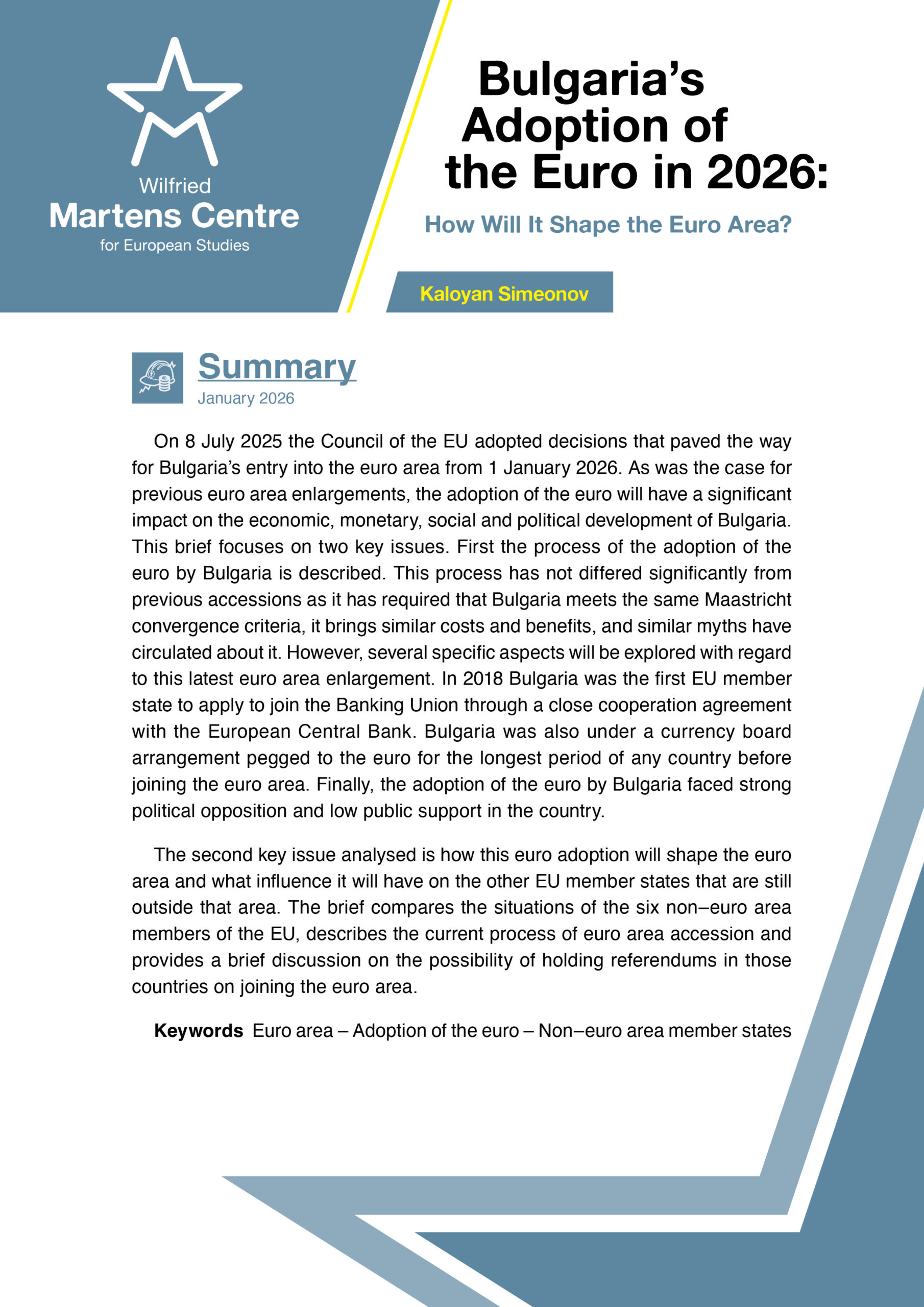The real difference between Greece’s main political forces
21 January 2015
Greece is heading into what may well be its most important election this decade. I think the real difference between the two major Greek parties vying to lead the next government, New Democracy (ND) and SYRIZA, is not, as often assumed, whether Greece should continue with the economic oversight programme drafted by the Troika. Rather, this is but a symptom of their underlying fundamental divergence in terms of how they perceive European politics and the way they evaluate Greece being a part of the Eurozone.
The party that is currently leading in the polls, SYRIZA, offers a complicated narrative. Given the fact that it began as a coalition of parties positioned at the extreme left of the political spectrum and that it could count on only 4-6 % of the vote before the crisis, this is to be expected. The party has undergone a radical structural and political change the last three years and yet remains different from the monolithic parties that we usually observe in Greece.
There are two observable and differing narratives present within the SYRIZA organisation.
Firstly the narrative sponsored by the internal opposition, meaning the group of party officials that is still very much attached to the idea of a socialistic transformation of the state and society. For these party members, SYRIZA, on its way to power, must keep its radical left credentials intact. Hence, a government led by SYRIZA should inevitably apply policies that are destined to achieve a general redistribution of wealth in favour of lower income earners. Moreover if the Troika is unwilling to accept such a programme, then it is inevitable that a SYRIZA government will break loose from the countries prior commitments leading Greece out of the Eurozone.
All in all, for a substantial minority of SYRIZA’s membership, the Euro is a symbol of capitalistic oppression- a barricade that hinders Greece’s path towards a more just and equal society. Therefore if this hypothesis is ‘proven’, after the elections, then SYRIZA’s left platform will certainly suggest that the country should break ranks from the Eurozone establishment.
On the other hand SYRIZA’s ruling majority is structured around the party’s president, Alexis Tsipras. This faction has been at the forefront of the effort to moderate the party’s position and broaden its base of support. SYRIZA’s leadership has tried to water down its leftist rhetoric by taking moderate positions regarding public order and national security. Nonetheless, SYRIZA’s stance towards the EU remains quite radical and utopian. For SYRIZA’s ruling officials, the EU is considered an entity that needs to be transformed radically in order to serve the people of Europe. Thus they see their ascendance to power as the ideal opportunity to initiate a popular wave that will transform the European establishment.
SYRIZA sees parties like Podemos in Spain and similar social movements in Italy as the first signs of a new order that will start taking over Europe after Tsipra’s election as Greek PM. Driven by this mindset, SYRIZA’s official political stance is that Europe’s popular dynamics will effectively abolish the current austerity programs and that the governance of the Eurozone will be effectively reoriented towards the goal of a fairer society. Within this context, SYRIZA believes that dilemmas like whether Greece will sign a new memorandum in order to stay in the Eurozone will become irrelevant.
The contradictory narratives inside SYRIZA have become more obvious as the election campaign has unfolded. The presidential team around Tsipras has spent much time and energy, during the campaign month, on trying to water down the rhetoric of the most radical members of the party. Given that there are only a few days left to the elections, such an incoherent narrative is very problematic. A party that may soon be called to form a government and take difficult decisions is expected to be more comprehensible when it comes to basic questions of economic and monetary policy. All this is to say that SYRIZA is failing to answer the billion dollar question: what will happen if the social movements, that they predict will unfold after Tsipra’s election, do not surge to power across Europe?
Then Tsipras will find himself having to choose between two distasteful alternatives. He can renege from his previous commitments and sign up for a renewed round of austerity and economic oversight – triggering a series of intra-party rifts that may lead to his eventual ousting from power. Or else, he must act unilaterally and declare his disobedience to the agreements previously signed by the Greek state. Such a decision would, de facto, lead Greece out of the Eurozone and into economic demise. All in all SYRIZA, especially its ruling elite, is once again faced with a fundamental question that has occupied the Left for a prolonged period of time: what if the history is not on their side after all?
Moving forward, the only alternative to SYRIZA and the second party in the polls right now is the centre-right New Democracy (ND) (the Greek EPP member party and the majority coalition partner in government). ND’s position on the above issues is far simpler and clearer. For them having the Euro is not only an economic and political necessity but also an existential one. Thus ND accepts that Greece may have to accept some type of economic oversight in order to ensure its place inside the Euro. All in all the main centre-right party in Greece sees the euro and the country’s European status as non-negotiable assets that grace the country with prestige and benefits and set it apart from the rest of the Balkans.
Such a perception is not limited to the centre-right but shared by the majority of the Greek voters. Although this may not be the major criterion that will decide the winner of the elections it is for sure that the next government will have to guarantee the country’s position inside the European edifice. Whoever fails to do so will certainly have history against him.
ENJOYING THIS CONTENT?





















